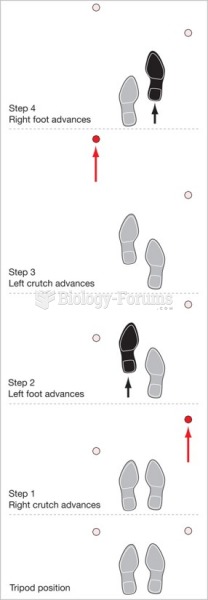|
|
|
The human body produces and destroys 15 million blood cells every second.
The lipid bilayer is made of phospholipids. They are arranged in a double layer because one of their ends is attracted to water while the other is repelled by water.
Approximately 70% of expectant mothers report experiencing some symptoms of morning sickness during the first trimester of pregnancy.
Children with strabismus (crossed eyes) can be treated. They are not able to outgrow this condition on their own, but with help, it can be more easily corrected at a younger age. It is important for infants to have eye examinations as early as possible in their development and then another at age 2 years.
Asthma attacks and symptoms usually get started by specific triggers (such as viruses, allergies, gases, and air particles). You should talk to your doctor about these triggers and find ways to avoid or get rid of them.
 Approximately 1 pound (0.45 kg) of ground elk meat formed into patties; note the relatively small fa
Approximately 1 pound (0.45 kg) of ground elk meat formed into patties; note the relatively small fa
 The geomagnetic polarity time scale shows how Earth’s magnetic pole has changed through geologic tim
The geomagnetic polarity time scale shows how Earth’s magnetic pole has changed through geologic tim





